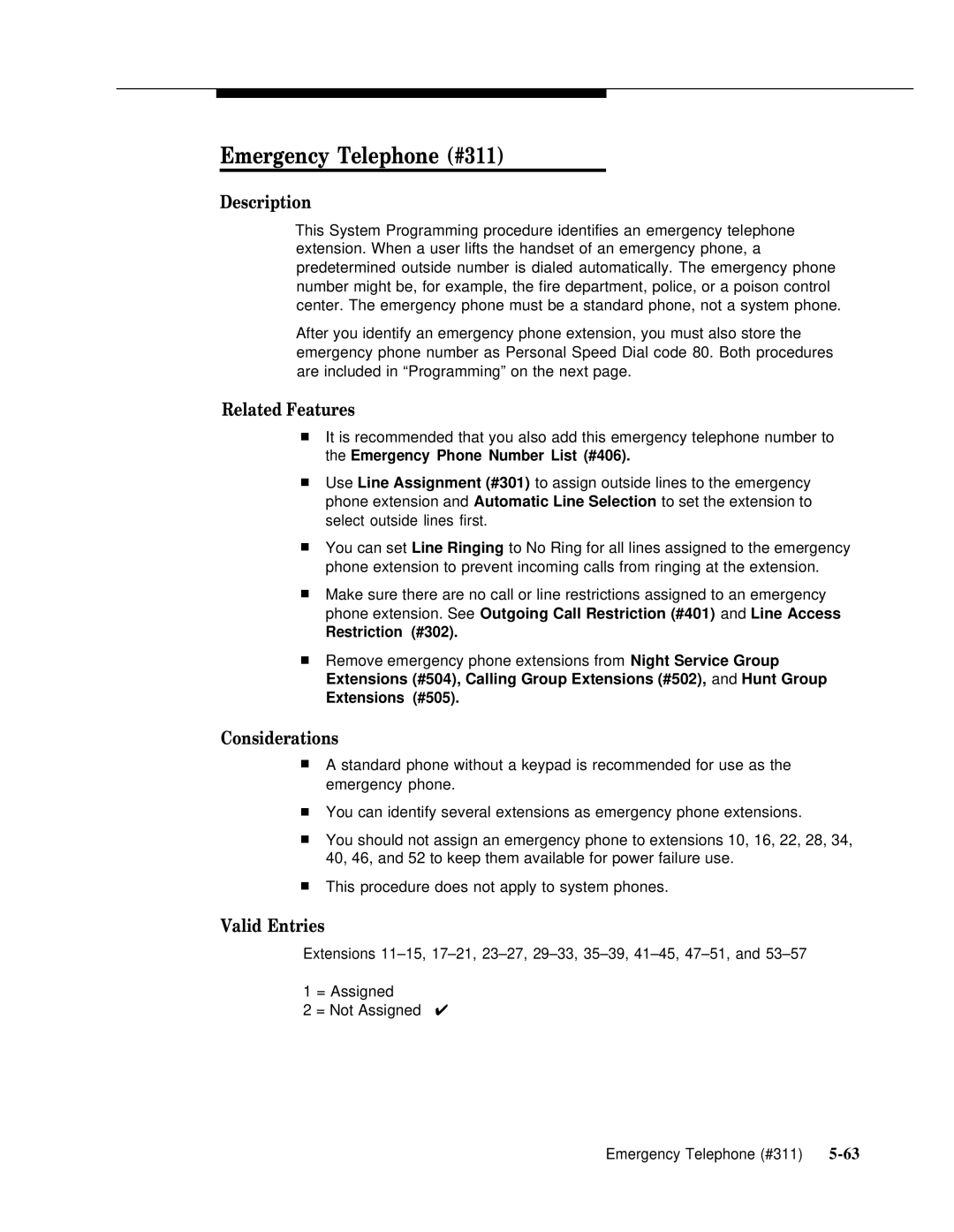
Emergency Telephone (#311)
Description
This System Programming procedure identifies an emergency telephone extension. When a user lifts the handset of an emergency phone, a predetermined outside number is dialed automatically. The emergency phone number might be, for example, the fire department, police, or a poison control center. The emergency phone must be a standard phone, not a system phone.
After you identify an emergency phone extension, you must also store the emergency phone number as Personal Speed Dial code 80. Both procedures are included in “Programming” on the next page.
Related Features
■It is recommended that you also add this emergency telephone number to the Emergency Phone Number List (#406).
■Use Line Assignment (#301) to assign outside lines to the emergency phone extension and Automatic Line Selection to set the extension to select outside lines first.
■You can set Line Ringing to No Ring for all lines assigned to the emergency phone extension to prevent incoming calls from ringing at the extension.
■Make sure there are no call or line restrictions assigned to an emergency phone extension. See Outgoing Call Restriction (#401) and Line Access
Restriction (#302).
■Remove emergency phone extensions from Night Service Group Extensions (#504), Calling Group Extensions (#502), and Hunt Group
Extensions (#505).
Considerations
■A standard phone without a keypad is recommended for use as the emergency phone.
■You can identify several extensions as emergency phone extensions.
■You should not assign an emergency phone to extensions 10, 16, 22, 28, 34, 40, 46, and 52 to keep them available for power failure use.
■This procedure does not apply to system phones.
Valid Entries
Extensions
1 = Assigned
2 = Not Assigned ✔
Emergency Telephone (#311) |
